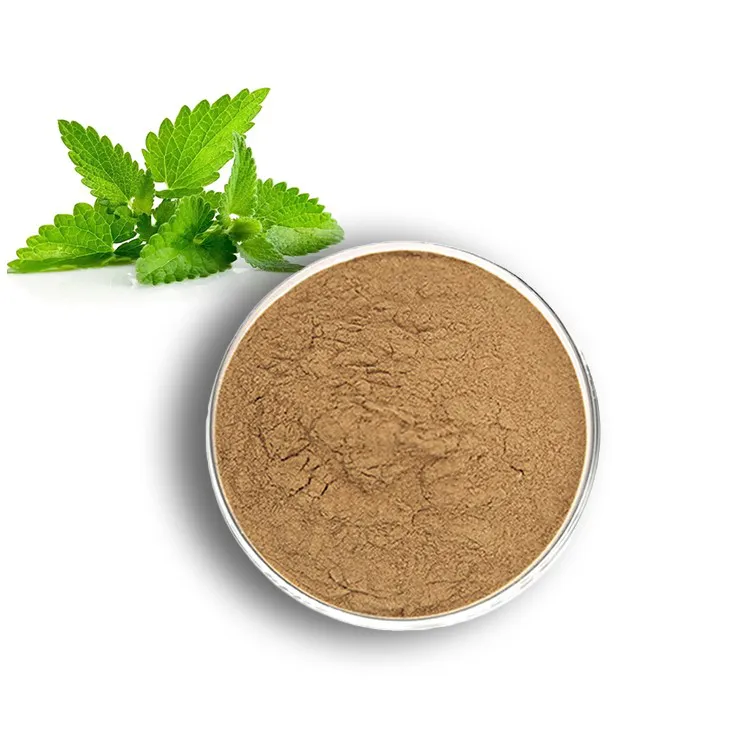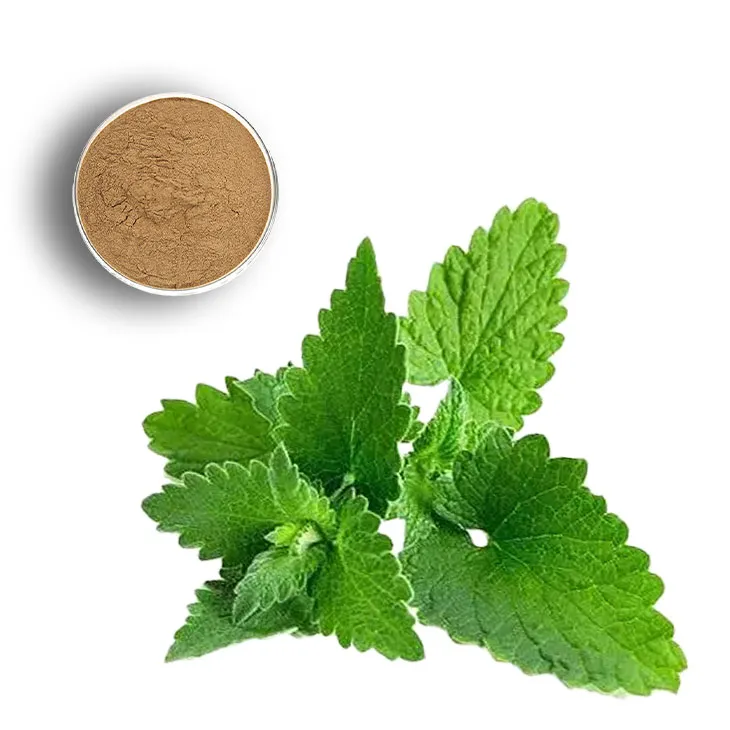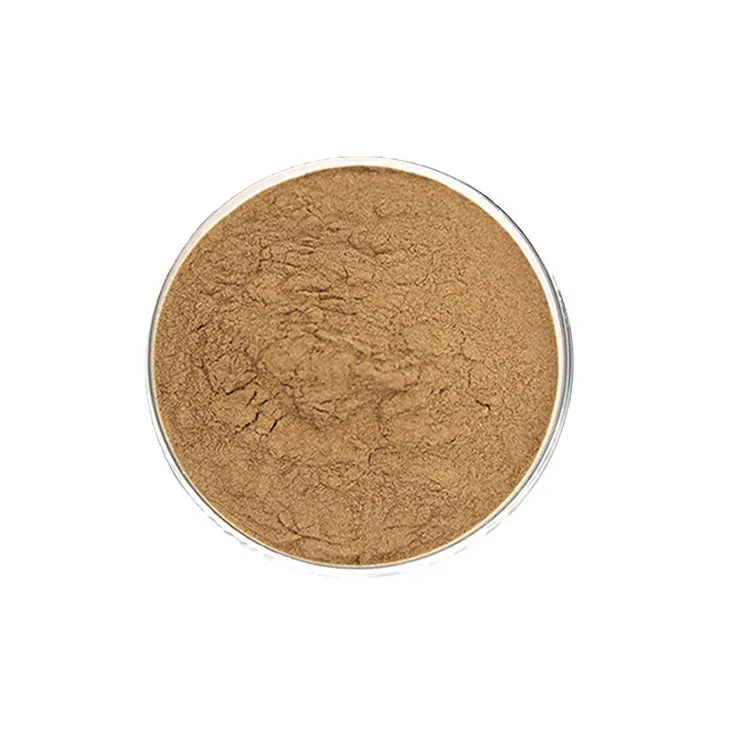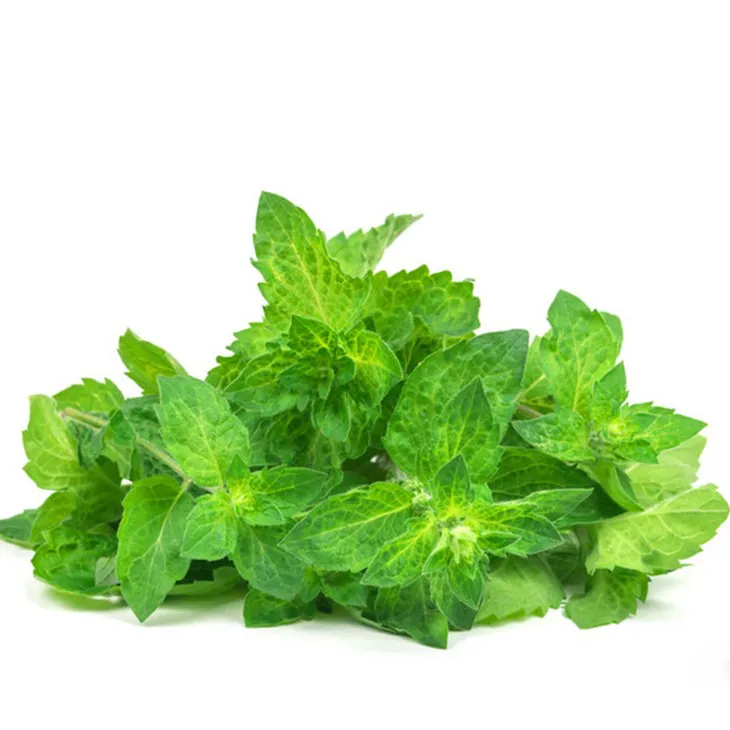- 0086-571-85302990
- sales@greenskybio.com
Read our comprehensive primer on high - quality organic lemon balm extract.
2024-12-17

1. Introduction
Organic Lemon Balm Extract has been gaining significant attention in recent years, both in the realms of traditional medicine and modern commercial products. This extract is derived from the lemon balm plant, a herbaceous perennial known for its pleasant lemon - scented foliage and a wide range of beneficial properties.

2. Organic Cultivation of Lemon Balm
2.1. Soil Requirements
For high - quality organic lemon balm, the soil must be rich in nutrients. Organic matter such as compost is often added to improve soil structure and fertility. The soil should have a good balance of drainage and water - holding capacity. Sandy loam soils are generally preferred as they allow for proper root development while preventing waterlogging, which can lead to root rot.
2.2. Seed Selection
Choosing the right seeds is crucial. Organic lemon balm seeds should be sourced from reliable suppliers who adhere to strict organic standards. These seeds are often non - GMO (genetically modified organisms) and are selected for their vigor and ability to produce healthy plants. When sowing the seeds, proper spacing is important to ensure each plant has enough room to grow and access to sunlight, air, and nutrients.
2.3. Pest and Disease Management
In organic cultivation, chemical pesticides are not an option. Instead, integrated pest management (IPM) techniques are employed. For example:
- Beneficial insects such as ladybugs and lacewings can be introduced to control aphids, which are common pests that can damage lemon balm plants.
- Neem oil, a natural and organic pesticide, can be sprayed on the plants to deter pests. It has antifungal and antibacterial properties as well.
- Crop rotation is also practiced to prevent the buildup of soil - borne diseases. By rotating lemon balm with other plants, the risk of diseases specific to lemon balm is reduced.
2.4. Weed Control
Weeds compete with lemon balm plants for nutrients, water, and sunlight. In organic farming, manual weeding is often the preferred method. However, mulching can also be used. Organic mulches such as straw or shredded leaves not only suppress weeds but also help retain soil moisture and add organic matter to the soil as they decompose.

3. The Extraction Process
3.1. Harvesting
The timing of harvesting is critical for obtaining high - quality lemon balm. The leaves are typically harvested when the plant is in its prime, usually just before flowering. At this stage, the concentration of active compounds in the leaves is at its highest. Harvesting is done carefully to avoid damaging the plant, as a healthy plant can continue to produce leaves for future harvests.
3.2. Drying
After harvesting, the lemon balm leaves need to be dried properly. This can be done in a well - ventilated area, away from direct sunlight. Drying helps to preserve the leaves and concentrate their flavors and beneficial compounds. Slow drying at a low temperature is often preferred as it helps to retain the maximum amount of active ingredients.
3.3. Extraction Methods
There are several methods for extracting the valuable compounds from dried lemon balm leaves:
- Solvent Extraction: This is a common method where solvents such as ethanol or ethyl acetate are used. The dried leaves are soaked in the solvent, which dissolves the active compounds. The solvent is then evaporated, leaving behind the concentrated extract. Ethanol is often favored as it is relatively safe and can effectively extract a wide range of compounds.
- Steam Distillation: In steam distillation, steam is passed through the dried lemon balm leaves. The steam carries the volatile oils and other active compounds, which are then condensed and separated from the water. This method is mainly used to obtain the essential oil of lemon balm, but it can also be used to produce an extract rich in volatile compounds.
- Supercritical Fluid Extraction: This is a more advanced method that uses supercritical carbon dioxide as the solvent. Supercritical carbon dioxide has properties between a gas and a liquid, allowing it to penetrate the plant material and extract compounds with high selectivity. This method is often used for high - end or pharmaceutical - grade extracts as it can produce a very pure and potent extract without leaving behind any solvent residues.

4. Properties and Benefits
4.1. In Traditional Medicine
Lemon balm has a long history of use in traditional medicine:
- Calming and Relaxing Effects: It is often used as a natural remedy for anxiety and stress. The compounds in lemon balm, such as rosmarinic acid and citral, are believed to have a calming effect on the nervous system. It can be consumed as a tea or in the form of an extract to help relieve nervous tension.
- Digestive Aid: Lemon balm has been used to soothe digestive problems. It can help with indigestion, bloating, and stomach cramps. The herb has carminative properties, which means it can help expel gas from the digestive tract.
- Sleep Aid: Many people use Lemon Balm Extract to improve their sleep quality. It can help relax the body and mind, making it easier to fall asleep and stay asleep throughout the night.
4.2. In Modern Skincare
The use of Lemon Balm Extract in skincare products is also on the rise:
- Antioxidant Properties: The extract is rich in antioxidants, such as flavonoids and phenolic compounds. These antioxidants help protect the skin from free - radical damage, which can cause premature aging, wrinkles, and skin dullness.
- Anti - Inflammatory Effects: Lemon balm extract can soothe inflamed skin. It is beneficial for conditions such as acne, eczema, and rosacea. By reducing inflammation, it can help improve the overall appearance and health of the skin.
- Rejuvenating and Moisturizing: The extract can help improve skin elasticity and hydration. It contains compounds that can stimulate collagen production, which is essential for maintaining firm and youthful - looking skin. Additionally, it can help retain moisture in the skin, leaving it soft and supple.

5. Quality Control and Standards
Ensuring the quality of organic lemon balm extract is of utmost importance. There are several aspects to quality control:
- Certification: Look for products that are certified organic by recognized certification bodies. This ensures that the lemon balm was cultivated using organic methods and meets strict organic standards.
- Purity and Potency: High - quality extracts should be pure and free from contaminants. The potency of the extract, in terms of the concentration of active compounds, should also be consistent. Analytical methods such as high - performance liquid chromatography (HPLC) can be used to measure the levels of key compounds in the extract.
- Shelf - Life and Storage: The extract should have a reasonable shelf - life when stored properly. It is usually recommended to store the extract in a cool, dry place, away from direct sunlight. Proper packaging, such as dark - colored glass bottles, can also help protect the extract from degradation.
6. Conclusion
High - quality organic lemon balm extract is a valuable natural substance with a wide range of applications in traditional medicine, modern skincare, and potentially other industries. Understanding its cultivation, extraction, properties, and quality control is essential for both producers and consumers. By following organic cultivation methods and using appropriate extraction techniques, we can ensure that the extract retains its beneficial properties and can be safely and effectively used for various purposes.
FAQ:
What are the main organic cultivation methods for lemon balm?
Organic lemon balm is typically cultivated without the use of synthetic pesticides and fertilizers. Crop rotation is often employed to maintain soil fertility and prevent pest build - up. Compost and natural manure are used to enrich the soil. Additionally, proper watering and sunlight management are crucial. Lemon balm plants usually thrive in well - drained soil and partial shade, which helps in producing high - quality plants suitable for extraction.
How is high - quality organic lemon balm extract obtained?
The extraction of high - quality organic lemon balm extract often involves methods like steam distillation. In steam distillation, steam is passed through the lemon balm plant material. This causes the volatile compounds, which contain the active ingredients, to vaporize. The vapor is then condensed back into a liquid, which is the extract. Another method could be solvent extraction, but for organic products, strict regulations ensure that only approved solvents are used to maintain purity and quality.
What are the calming effects of lemon balm extract in traditional medicine?
In traditional medicine, lemon balm extract is known for its calming effects. It can help reduce anxiety and stress. It may act on the nervous system by interacting with certain neurotransmitters. For example, it has been suggested to have a mild sedative effect, which can promote relaxation. It has also been used to ease insomnia, helping people fall asleep more easily.
How is lemon balm extract used in modern skincare products?
Lemon balm extract is used in modern skincare products for its rejuvenating properties. It has antioxidant properties that can help fight free radicals, which are responsible for skin aging. It can also soothe irritated skin, making it suitable for products aimed at sensitive skin. In addition, it may help in improving the skin's complexion by promoting a healthy glow and reducing redness.
What makes organic lemon balm extract different from non - organic?
Organic lemon balm extract is different from non - organic in several ways. Firstly, the source plants are grown without synthetic pesticides and fertilizers in organic cultivation. This means there are no chemical residues in the extract. Secondly, organic farming practices often lead to a more natural and sustainable growth of the plant, which may result in a different chemical composition. The lack of chemical interference during growth can potentially lead to a purer and more effective extract in terms of its natural properties.
Related literature
- The Benefits of Organic Lemon Balm: A Comprehensive Review"
- "Organic Cultivation and Extraction of Lemon Balm: Quality Aspects"
- "Lemon Balm Extract in Traditional and Modern Therapies"
- ▶ Hesperidin
- ▶ citrus bioflavonoids
- ▶ plant extract
- ▶ lycopene
- ▶ Diosmin
- ▶ Grape seed extract
- ▶ Sea buckthorn Juice Powder
- ▶ Beetroot powder
- ▶ Hops Extract
- ▶ Artichoke Extract
- ▶ Reishi mushroom extract
- ▶ Astaxanthin
- ▶ Green Tea Extract
- ▶ Curcumin Extract
- ▶ Horse Chestnut Extract
- ▶ Other Problems
- ▶ Boswellia Serrata Extract
- ▶ Resveratrol Extract
- ▶ Marigold Extract
- ▶ Grape Leaf Extract
- ▶ blog3
- ▶ blog4
- ▶ blog5
-
Pure 85% Tomentil Extract.
2024-12-17
-
Lily extract
2024-12-17
-
Resveratrol extract
2024-12-17
-
Curcuma Longa Extract/Turmeric extract
2024-12-17
-
Tongkat Ali Extract
2024-12-17
-
Lemon Extract
2024-12-17
-
Dandelion Leaf Extract
2024-12-17
-
Cassia Seed Extract
2024-12-17
-
Sea buckthorn oil
2024-12-17
-
Green Tea Extract
2024-12-17
-
Wheat Germ Extract
2024-12-17





















